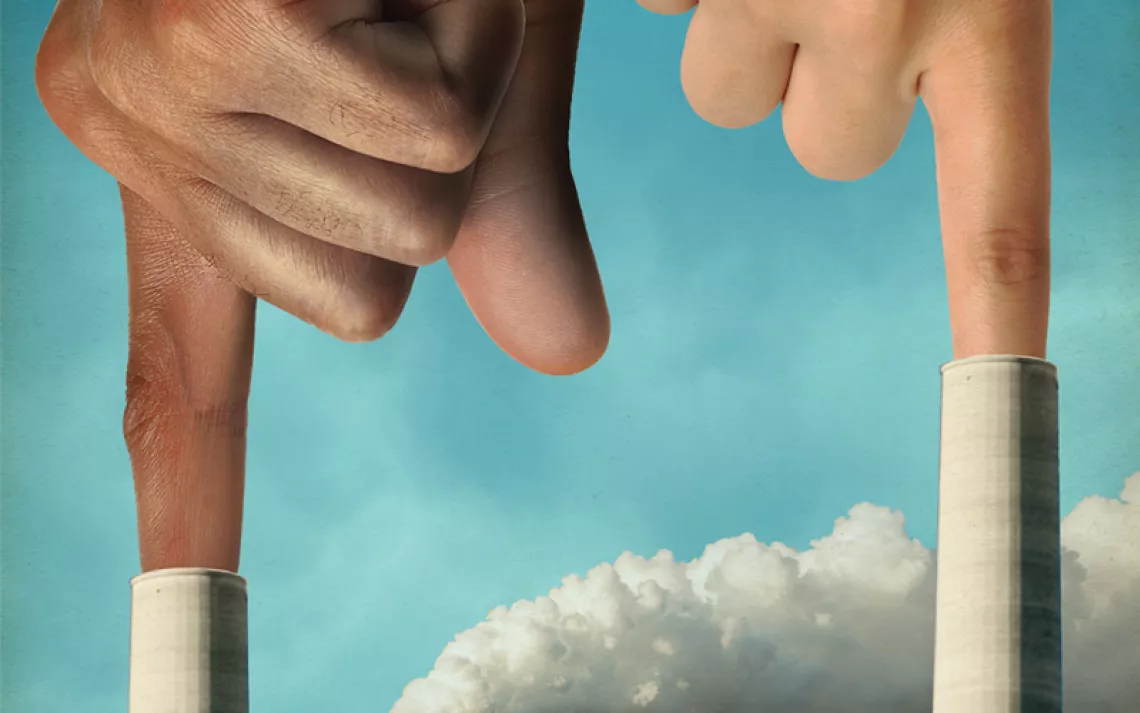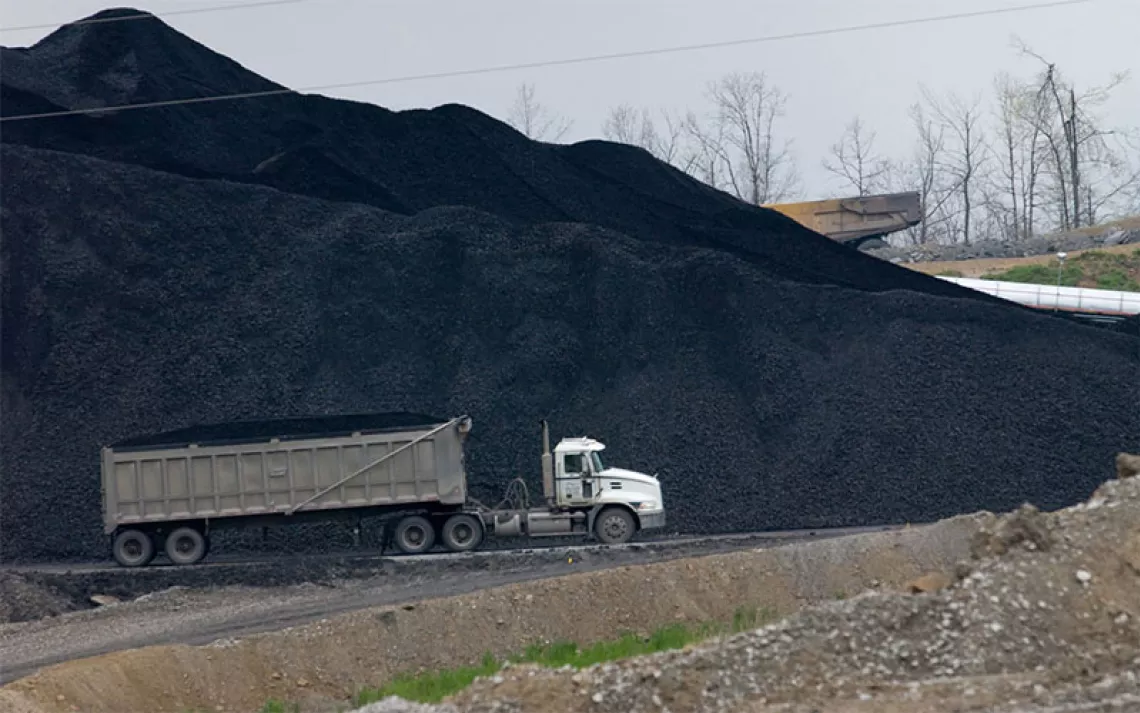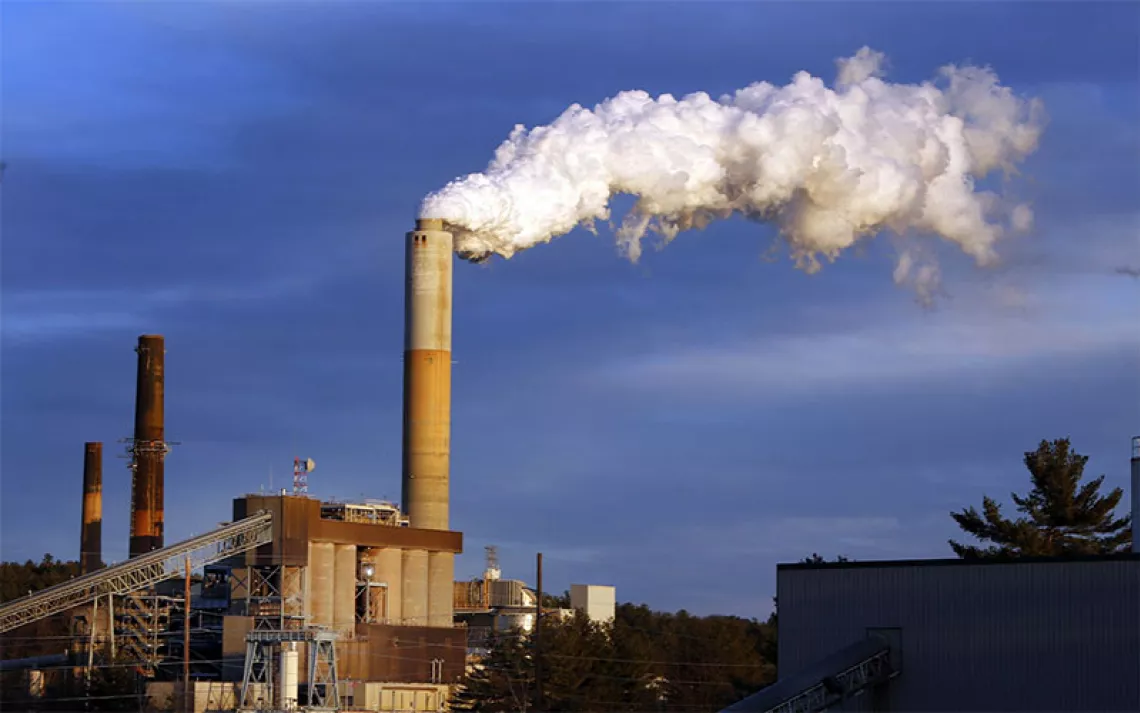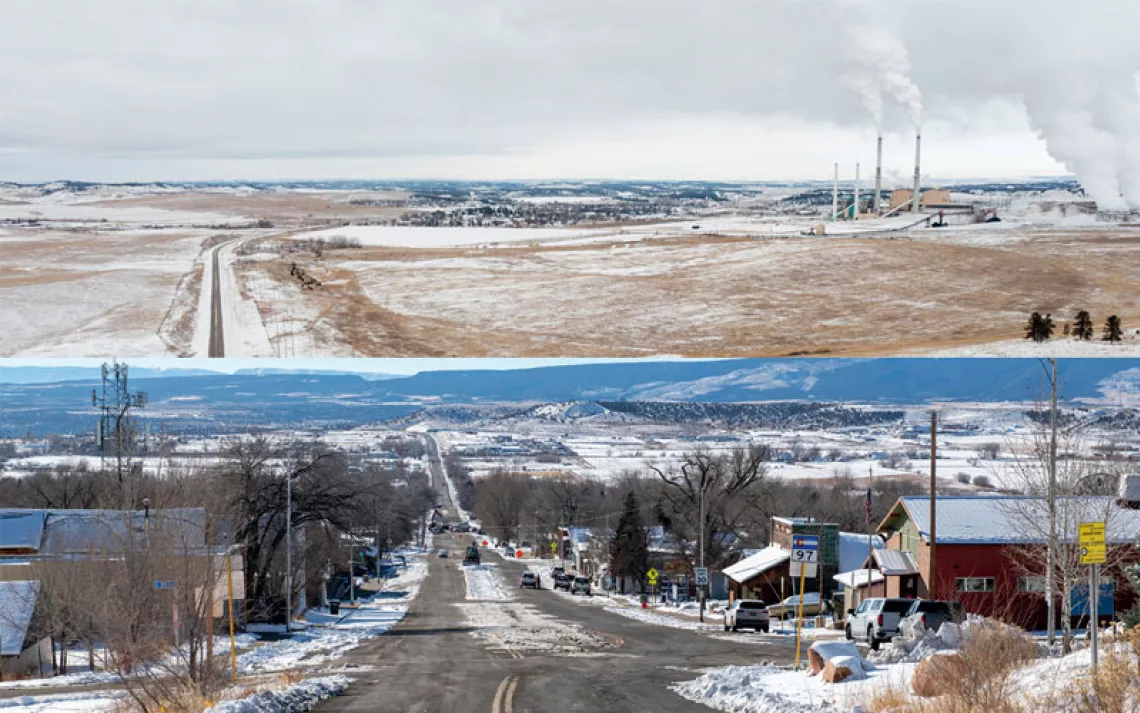Great Barrier Reef Madness
Dumping and dredging for new coal ports deal latest blows to Australia's natural treasure.
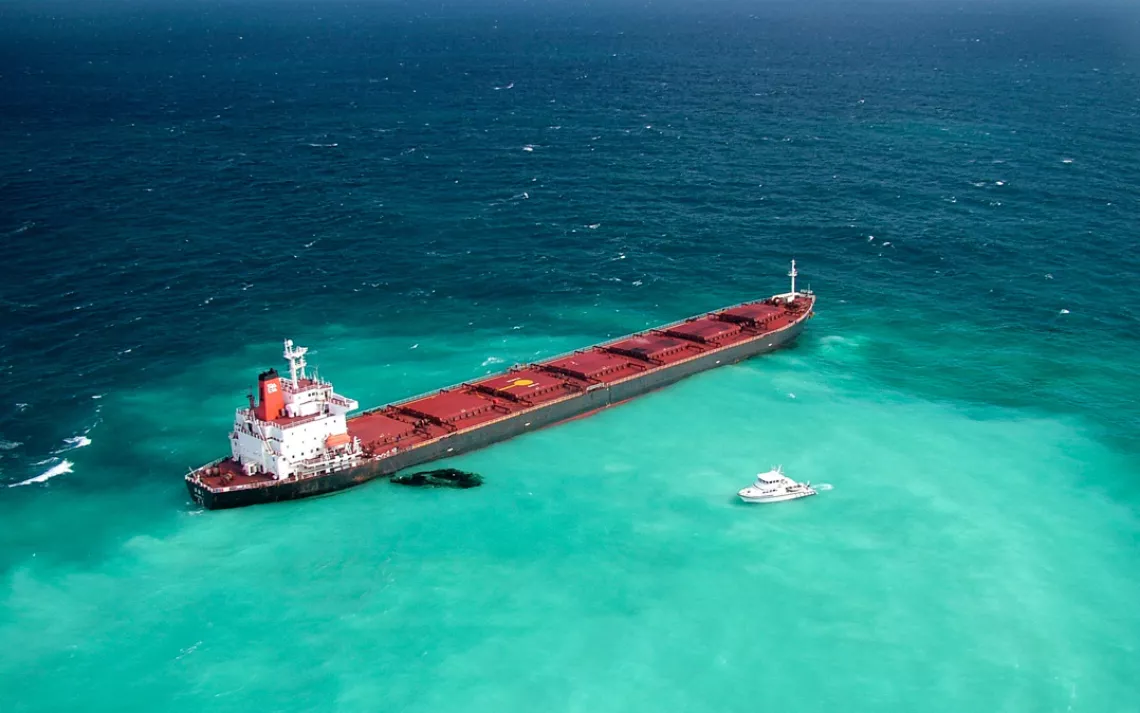
In 2010, the Chinese coal vessel Shen Neng 1 ran aground on the Great Barrier Reef, creating a two-mile-long, 800-foot-wide grounding scar. | Photo by Reuters/Maritime Safety Queensland/Handout
Over the past 30 years, half of the coral in the Great Barrier Reef has died as a result of cyclones, rising ocean temperatures, starfish infestations, and agricultural runoff.
Things are about to get worse. In August, the state of Queensland, Australia, approved a railroad linking coal mines in its Galilee Basin to the Abbot Point port. It's the latest lost battle for environmentalists fighting Queensland's large-scale plan to expand its coal industry with new mines and bigger export terminals. If the development is fully realized, five major port expansions will accommodate 3,000 new freight and cruise ships per year, and millions of tons of sediment dredged to expand the ports could be dumped inside the Great Barrier Reef Marine Park.
"The level of dredging, dumping, and shipping is unprecedented in the reef's history," says Felicity Wishart, campaign manager for the Australian Marine Conservation Society.
Dredging clouds the water, killing coral, as well as the sea grass that endangered turtles and dugongs eat, says Jon Brodie, a chief marine scientist at Queensland's James Cook University. It also stirs up compounds that turn into sulfuric acid. A 2011 dredging at nearby Gladstone Harbour led to ulcerated fish and crustaceans.
For the Abbot Point project, dumping sediment into the Great Barrier Marine Park was initially green-lighted by the Great Barrier Reef Marine Park Authority, a government body charged with protecting the park. "What they picked was the cheapest, quickest, and dirtiest option," Brodie says. But following a spate of public outrage, as well as two court cases challenging dredging and dumping—one of them supported by the $6 billion tourism industry—the decision was overturned, though the government refused to permanently ban dumping dredge spoils in the marine park.
None of this is surprising in Australia, where Prime Minister Tony Abbott selected a pro-coal, climate change-denying zealot, Maurice Newman, to chair his Business Advisory Council. The Abbott government is especially determined to open up the Galilee Basin. In addition to fast-tracking the port expansions and the rail line, the government has offered free water to coal companies mining there.
A recent poll shows that 61 percent of Australians believe that protecting the reef should be a top priority. But the current Australian government seems more concerned about propping up its coal industry than protecting its greatest international treasure.
This article was funded by the Sierra Club's Beyond Coal campaign.
 The Magazine of The Sierra Club
The Magazine of The Sierra Club
